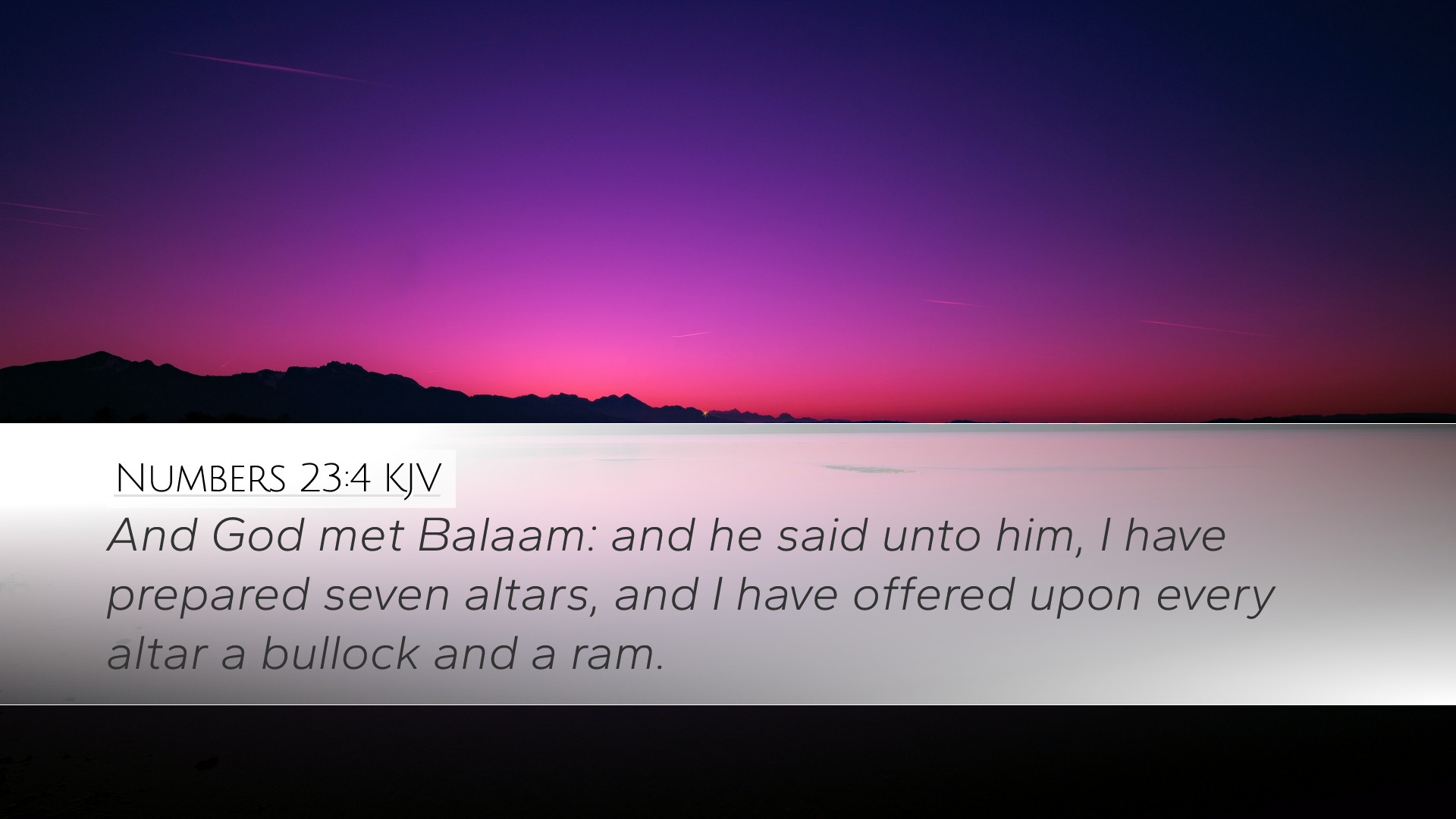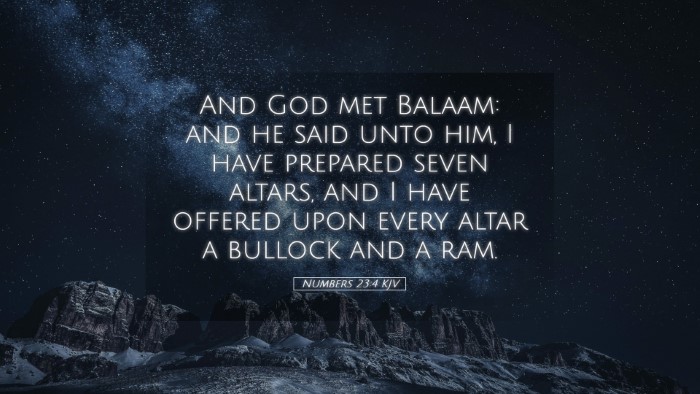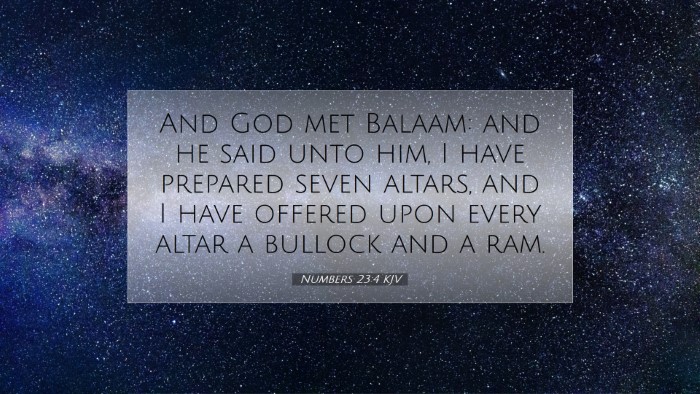Commentary on Numbers 23:4
Introduction
Numbers 23:4 states, "And God met Balaam: and he said unto him, I have prepared seven altars, and I have offered upon every altar a bullock and a ram." This verse occurs within the broader context of the narrative concerning Balaam, a prophet hired by Balak, the king of Moab, to curse the Israelites as they journeyed toward the Promised Land. Balaam's interactions with God reveal significant insights about divine sovereignty, prophetic authority, and the nature of blessing and cursing.
Contextual Analysis
The Nature of Balaam's Mission
Balaam was a man of considerable reputation, known for his ability to bless and curse effectively (Numbers 22:6). His mission, initiated by Balak’s overtures, introduces themes of conflict between human desires and divine intentions. The initial meeting described in Numbers 23:4 marks a pivotal point where human aspirations confront the sovereign will of God.
Theological Insights
1. Divine Encounter
As noted by Matthew Henry, the phrase "And God met Balaam" signifies a direct divine encounter. This event underscores God’s control over the prophetic office. Balaam’s undertaking to curse Israel reveals his misguided ambition, emphasizing how God intervenes in human plans. Even a man acting contrary to God’s will can only prophesy as God permits.
2. The Construction of Altars
Balaam’s preparation of seven altars, upon which he offers sacrifices, exemplifies an attempt to gain favor from God. Albert Barnes notes that the number seven often symbolizes completion and perfection in Scripture, reflecting Balaam’s desire for a thorough engagement with the divine. However, the act of sacrifice itself does not signify compliance with God’s will; rather, it highlights the futility of ritual without righteousness.
3. The Sacrifices Offered
The offering of a bullock and a ram upon each altar carries significant weight in the sacrificial system. Adam Clarke points out that these animals represented costly offerings intended to invoke God’s blessing. However, despite the formality of these actions, they cannot override God’s sovereign purpose for His people. The inherent futility of Balaam’s efforts to curse Israel becomes apparent as his sacrifices are made in vain against God’s covenant people.
Practical Applications
For pastors and theologians, Numbers 23:4 provides critical lessons about the nature of true worship and the potency of prayer and sacrifice.
- The Inadequacy of Ritualism: The story warns against ritual acts devoid of sincere obedience. Sacrifices, when not accompanied by a heart aligned with God, yield no divine favor.
- Understanding Divine Sovereignty: The text demonstrates that God’s plans will prevail regardless of human attempts to alter them, urging believers to trust in God’s perfect will.
- Prophetic Responsibility: Those called to speak for God must be vigilant against the temptation to compromise their messages for personal gain or influence.
Conclusion
The events described in Numbers 23:4 serve as a powerful reminder of the character of God and the reliability of His promises. The narrative illustrates that while human beings may plan or scheme, it is ultimately God’s purpose that stands firm. As Balaam’s story unfolds, it reinforces the notion that blessings cannot be manipulated through external actions divorced from relationship and obedience to God. For scholars and students of the Bible, this passage invites deeper reflection on the integrity of prophetic ministry and the sovereignty of God in all matters concerning His people.


